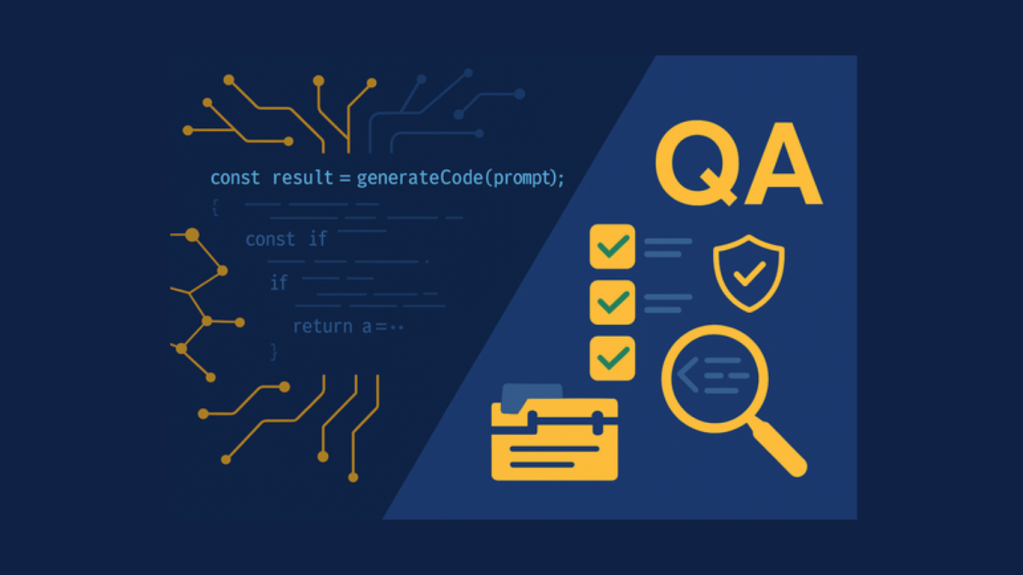Ever notice that some apps feel snappy while others are sluggish? The programming language used plays a significant role in this. Every millisecond counts in performance-critical projects—like real-time games or high-frequency trading systems. The speed of the language you choose can significantly impact how efficiently your app runs.
When tasks demand rapid processing, a faster language helps your application handle more operations quickly and smoothly. This translates into a better user experience and more reliable performance.
In this post, we’ll dive into some of the fastest programming languages for application development available today. We’ll explain why speed is crucial and how selecting the right language can give your projects the performance edge they need to succeed.
Criteria for Evaluating Speed
Compilation vs. Interpretation: What’s Faster?
Some programming languages are compiled, meaning they turn code into machine language before running it. This usually makes them quicker, like with C and C++. Other languages are interpreted, which means the code gets translated while it’s running. This can slow things down, as seen with Python.
Runtime Efficiency: How It Affects Performance
Runtime efficiency is all about how well a language manages tasks while the program is running. Languages like Java use Just-In-Time (JIT) compilation to speed things up by optimizing code as it runs. Without these optimizations, a language can be slower.
Memory Management: Manual vs. Automatic
Managing memory can make a big difference in performance. Languages like C and C++ let you control memory directly, which can be faster but needs careful handling. Languages with automatic garbage collection, like Java and Python, manage memory for you but can sometimes introduce delays.
Optimization Techniques: Making Code Run Faster
Different languages have features that help boost performance. Rust, for instance, is built for speed and safety without needing garbage collection. Go is known for efficiently handling many tasks at once.
👋 Do you need an expert software team to evaluate your application’s performance?
Top Fastest Programming Languages
C
- Overview: C is famous for being fast and efficient.
- Key features: Direct access to memory and low runtime overhead.
- Use cases: Great for system programming, embedded systems, and performance-heavy applications.
C++
- Overview: Builds on C with additional object-oriented features.
- Key features: Merges low-level performance with high-level programming.
- Use cases: Used in game development, real-time systems, and applications needing top performance.
Rust
- Overview: Rust aims for high performance and safety.
- Key features: Guarantees memory safety without garbage collection.
- Use cases: Ideal for system programming, web assembly, and high-concurrency applications.
Go (Golang)
- Overview: Excels at managing many tasks efficiently.
- Key features: Built-in support for concurrency and fast compilation.
- Use cases: Perfect for cloud services, microservices, and network applications.
Java
- Overview: A versatile language with solid performance thanks to JVM improvements.
- Key features: Uses Just-In-Time (JIT) compilation and advanced garbage collection.
- Use cases: Common in enterprise apps, web servers, and Android development.
Node.js
- Overview: A runtime environment based on Chrome’s V8 engine, excellent for async tasks.
- Key features: Handles non-blocking I/O and supports high concurrency.
- Use cases: Ideal for real-time apps, server-side scripting, and scalable network services.
Python
- Overview: Python is versatile and easy to use. Though not the fastest, it’s a key player in modern programming.
- Key features: High-level data structures and a large set of libraries.
- Use cases: Widely used for web development, data analysis, AI, and automation.
| Language | Key Features | Typical Use Cases | Performance Strengths | Ease of Use |
| C | Direct memory access, minimal overhead | System programming, embedded systems | High speed, low latency | Moderate (low-level) |
| C++ | Object-oriented, low-level control | Game development, real-time systems | High performance, flexibility | Moderate |
| Rust | Memory safety, zero-cost abstractions | System programming, web assembly | High performance, safety | Moderate (steep learning curve) |
| Go | Built-in concurrency, fast compilation | Cloud services, microservices | Efficient concurrency handling | Easy to learn |
| Java | JIT compilation, advanced garbage collection | Enterprise applications, Android development | Strong performance with optimizations | Moderate |
| Node.js | Asynchronous operations, non-blocking I/O | Real-time apps, server-side scripting | Efficient handling of async tasks | Easy to use |
| Python | High-level data structures, extensive libraries | Web development, data analysis, AI | Slower execution speed | Very easy |
Choosing the Right Language for Your Project
Understanding Project Needs
How Important Is Speed?
Think about how crucial speed is for your project. If you’re developing something like a real-time game or a high-frequency trading system where every millisecond counts, you’ll want a language known for top-notch performance, like C or Rust.
How Fast Do You Need to Develop?
If you need to quickly get your project off the ground, consider languages like PHP(Laravel), Python or JavaScript (Node.js). Thanks to their rich libraries and frameworks, they’re great for rapid development, even if they aren’t the fastest in execution. Many times the minor performance improvements are not noticeable until your application is under a very high load with tens or hundreds of thousands of concurrent users, and speed of developing features may be a more important metric than the runtime of the code on the server.
What Skills Does Your Team Have?
Look at your team’s skills. If your developers are experts in JavaScript over C++, it might make more sense to use JavaScript rather than choosing a faster but less familiar language.
Finding the Right Balance
Speed vs. Ease of Use
Remember, there’s often a trade-off between raw speed and how easy a language is to work with. Rust might be super fast, but it can also be more challenging to learn than Python, which is more straightforward but slower.
How Well It Fits with Other Tech
Check how well the language integrates with other tools and technologies you’re using. For example, Java and Node.js play nicely with many services and databases, making development smoother.
Long-Term Maintenance
Think about how easy it will be to maintain your project in the long run. Languages with strong community support and lots of libraries, like PHP, Java and Python, can make it easier to keep things running and up-to-date.
Real-World Examples
For High-Performance Needs
If you’re working on something that needs to run incredibly fast, like a gaming engine or a trading app, C and C++ are often the go-to choices due to their speed and control over system resources.
For Web Development
In web development, PHP, Python and Node.js are popular. Python is great for backend tasks and data work, while Node.js handles real-time web requests efficiently, and PHP is by far the most popular language on the web for building web-based applications.
For System Programming
C and Rust are usually preferred when dealing with system-level programming or hardware interaction because they offer excellent performance and control.
Making Your Decision
Weighing Pros and Cons
Think about the trade-offs between speed, ease of use, and other factors like development time and team expertise. Pick a language that gives you the best mix for your specific project needs.
Trying Out Prototypes
Before you make a final decision, try prototyping key parts of your project in a few different languages. This can help you see how well each one meets your needs.
Staying Adaptable
Be ready to adjust your choice as your project evolves. What initially seemed like the best option might change as development progresses.
Summing It Up
Choosing the right programming language can make a big difference in how well your project performs and how quickly you can get it done. Each language has its perks, whether it’s blazing speed, ease of use, or a mix of both. Knowing what each brings to the table helps you pick the best tool for your job.
Need help figuring out the best tech for your project? Curotec’s team ensures you get the right fit and quickly achieve your goals.
Want to chat about how we can help? Reach out to us, and let’s make your next project a success.









